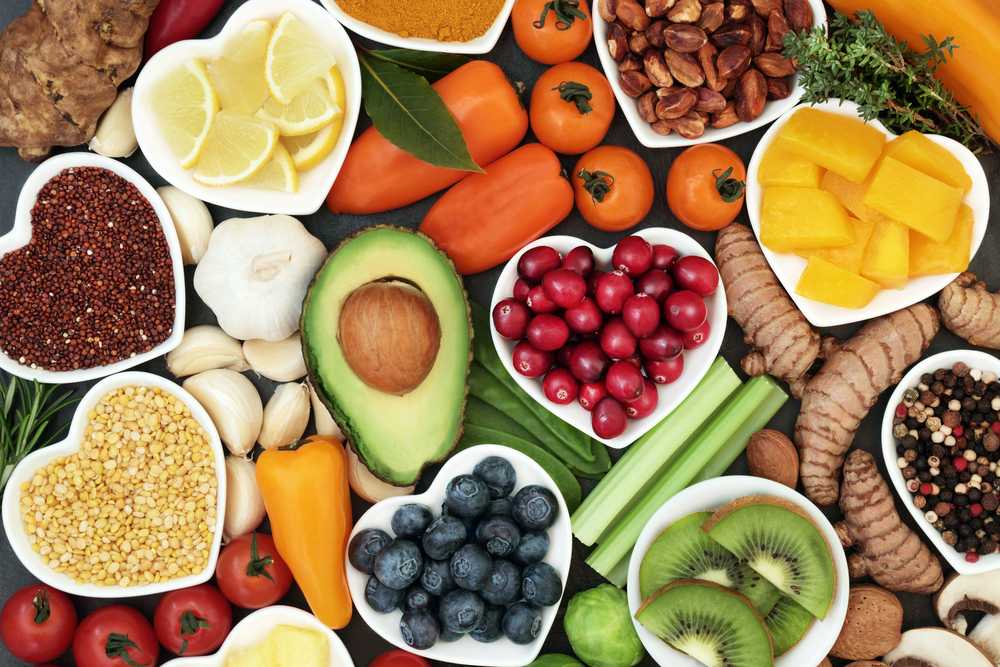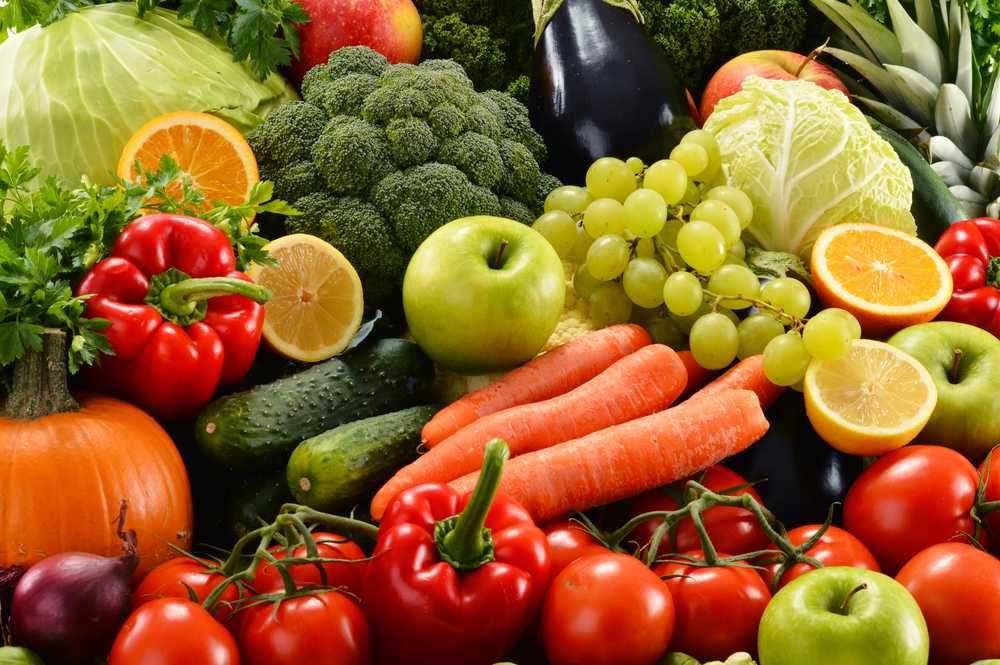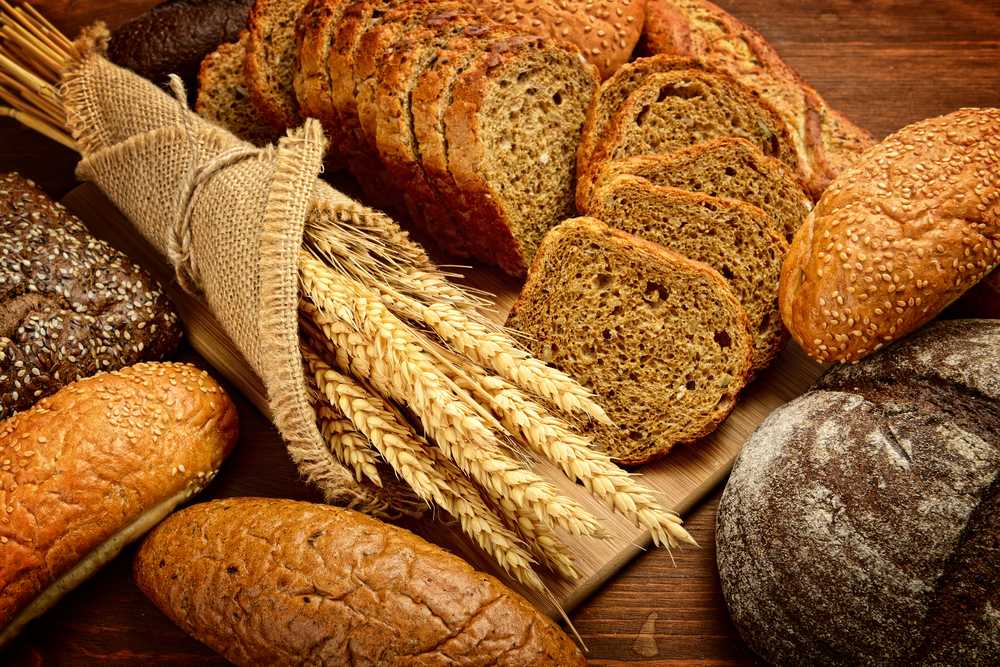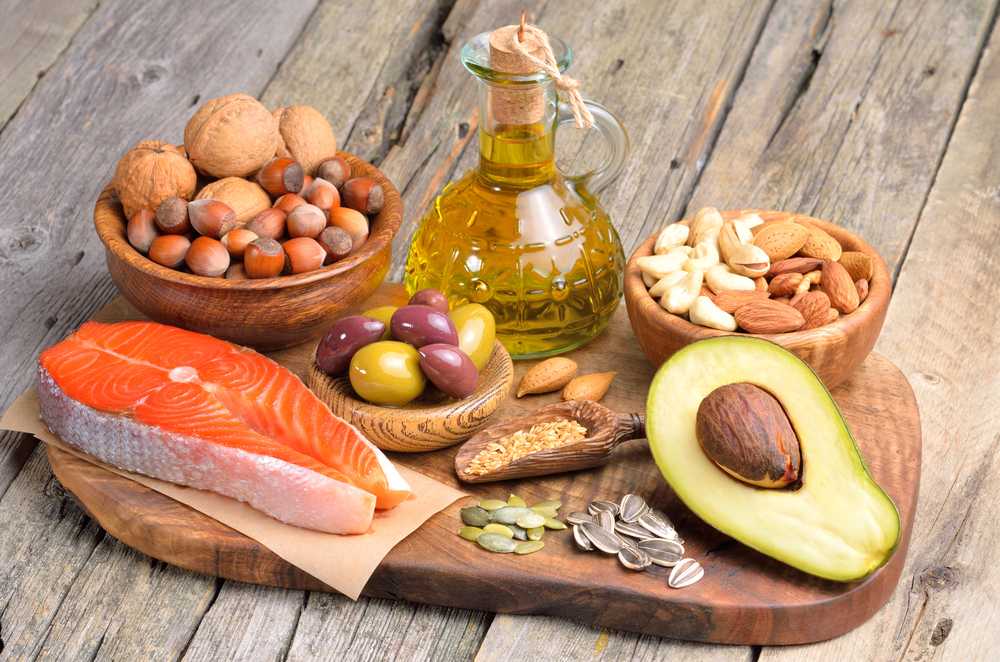Nutrition Tip Tuesday is a weekly reminder to eat more nutritious and healthy foods to support your overall well-being. Eating plenty of fruits, vegetables, nuts, seeds, and lean proteins will help you stay on track with your nutritional goals while providing essential nutrients that keep you feeling great and looking fantastic.
Nutrition is an integral component of your health and wellness journey. Eating the right nutrients can help you stay healthy, feel great, and reduce the risk of chronic illnesses like heart disease or diabetes.
Unfortunately, it can be easy to become confused about what's best for you. Even qualified experts seem to have differing opinions. Fortunately, some wellness strategies have been scientifically proven successful.
This Tuesday, I’ve added health and nutrition tips to help you stay on track with your goals. Keep reading to discover how easy it is to incorporate these healthy habits into your weekly routine!
Be Mindful of Your Nutrition Choices

Food can be more than just fuel for our bodies, so it's essential that we make mindful choices about what we eat. Mindful eating involves paying attention to the experience of eating and how it influences our physical, emotional, and psychological well-being.
When planning a meal or cooking at home, it's essential to maximize every bite. That means paying attention to hunger cues, selecting nutritious foods, and savoring every flavor, texture, aroma, and taste of what you put in your mouth.
Eating mindfully can help you make healthier food decisions and promote better digestion, weight management, and wiser future eating habits. This approach may be especially beneficial if you have a history of food insecurity.
One advantage of mindfulness is that it increases awareness of your body's internal hunger signals and fullness cues. This can give you a better insight into how different foods affect energy levels and mood, which in turn will inform decisions about when and what to eat.
Eating more nutrient-dense foods and limiting high-fat, high-calorie snacks will help you cultivate healthier habits and lower the risk of chronic diseases like heart disease, diabetes, and obesity. Eating nutritiously dense food instead of high-calorie treats could potentially result in healthier weight management over time.
You can be more mindful when it comes to portion sizes and how much food you eat at once. Utilizing a to-go box at restaurants or freezing half of your meal for later can help keep portions in check.
Another way to be more mindful of your food choices is to take time to savor each meal and take your time. Eat slowly, put your fork down between bites, and chew each item thoroughly - this may be difficult but it also helps you enjoy your food more and reduce the likelihood that you'll overeat.
You can also try to tie your food choices to what matters most to you, such as connection, pleasure, fun, experience, culture, celebration, tradition, and artistic expression. By prioritizing quality over quantity when making food decisions, you'll create a healthier balance for yourself and those around you.
Eat A Variety of Foods

Nutrition is an integral part of good health, helping you to maintain a healthy weight and lower the risk for chronic illnesses. Eating right can also give you energy boosts and enhance your quality of life.
Eating a variety of foods is one of the best ways to provide your body with essential nutrients, vitamins, and minerals. Doing this helps ensure that you're getting all of the essential minerals it requires for proper functioning.
Foods rich in fiber, protein, and healthy fats can keep you feeling full for longer periods of time and help to curb overeating. Fruits, vegetables, beans, nuts, seeds, and fatty fish all make great additions to a varied diet that provides these vital nutrients.
However, it's essential to remember that the nutritional profiles of different foods differ considerably. For instance, oranges and almonds both provide great sources of vitamin C but differ significantly when it comes to amounts of vitamin E or magnesium.
Increase the variety of fruits, vegetables, and plant-based foods like nuts, seeds, and legumes to get more vitamins, minerals, and antioxidants in your meals. Eating more produce will increase your dietary intake of essential vitamins, minerals, and antioxidants.
If you're having difficulty locating a diverse selection of foods, consider signing up for a food-delivery service. These companies send you different boxes each week so that there's always something new to try every week.
Make time each week to cook a few new meals and dishes. This can help you mix up your eating regimen and prevent diet burnout.
Eat Whole Foods

Eating a diet rich in whole foods can be an excellent way to enhance your well-being. This eating plan emphasizes various fruits, vegetables, whole grains, nuts, legumes, and dairy products as they all contain essential vitamins, minerals, and fiber that your body requires for proper functioning.
A balanced diet that incorporates plenty of whole foods can reduce your risk for heart disease, cancer, and other serious illnesses. Furthermore, this type of eating reduces your chances of becoming obese or developing diabetes.
Many processed foods found in stores and grocery markets contain added sugars, salt, and other unhealthy ingredients that aren't beneficial for you. That is why it's essential to eat whole foods instead of highly processed ones.
At your local supermarket, farmer's market, or food stand you can find a wide range of whole food options. Be sure to read ingredient labels before purchasing anything and steer clear of foods with excessive saturated fat, added sugars, or sodium.
Be mindful of high-sugar foods like soda, candy, chips, cookies, and desserts. Consuming these items can cause an abrupt spike in blood sugar levels that could lead to weight gain or diabetes.
For lunches, opt for a large bowl of fresh fruit and veggies with a small serving of protein. At dinner, enjoy lean proteins along with some whole-grain bread or salad as your main course.
The great thing about this diet is that it's not restrictive. You can still indulge in your favorite treats, like ice cream or pizza; just remember to opt for the original flavor over sweetened varieties.
Eating a diet rich in whole foods can be an effective way to shed pounds, maintain your current weight, or achieve improved fitness levels. Furthermore, this type of eating encourages overall good health by increasing your dietary intake of essential vitamins, minerals, and antioxidants that combat free radicals and reduce inflammation associated with many chronic illnesses.
Eating a diet composed primarily of whole foods is essential for staying healthy. Not only does this help avoid the unhealthy fats and sugars found in processed food, but it may also reduce inflammation which has been linked to many Western diseases.
Switching to a more whole-food diet can be difficult at first, but the effort will pay off in the end. Your cravings for junk food will lessen and you'll feel healthier overall.
When shopping for food, opt for items closer to their natural state in the outer aisles of a grocery store. This could include fresh fruits and vegetables, whole grains like brown rice or quinoa, as well as steel-cut oats, as well as lean meats.
When making food selections, aim for those that are high in fiber and low in saturated fat, added sugar, and sodium. When possible, opt for organic products whenever possible.
If you don't have time to prepare all of your food from scratch, consider buying canned or frozen options that have minimal processing. You can find pre-washed salads, canned beans, and frozen fruit that can be cooked up quickly in your own kitchen.
A whole foods diet not only benefits your health, but it's also better for the environment. It reduces the number of chemicals and preservatives used in commercial food production while being cheaper than a diet consisting solely of processed foods.
Eat More Fruits and Vegetables

Eating more fruits and vegetables has numerous health advantages, from aiding weight loss to decreasing your risk for cancer and heart disease. Furthermore, they contain vitamins, minerals, and phytochemicals - beneficial natural substances with anti-inflammatory, antioxidant, and disease-prevention properties - which are found in abundance in produce.
Fortunately, most vegetables are low in calories. However, it's still wise to count your servings of fruit and vegetables when making meals so that you get enough nutrients each day.
Eating more vegetables and fruits can improve your overall health by helping you feel fuller for longer, avoiding food cravings, and decreasing the risk of diseases like diabetes or high blood pressure. To get the most benefit from your investment in produce, select a variety of colorful fruits and veggies since each contains unique nutrients and phytochemicals.
If you don't enjoy the taste of fresh produce, frozen and canned fruits, and veggies offer similar nutrition at a cheaper cost. Just check labels for ingredients like sodium or added sugars to avoid filling your body with empty calories.
Vegetables can be an excellent source of fiber and potassium, which may help lower your blood pressure. Furthermore, they supply vitamins C and A, folate, calcium, and iron.
Vibrantly-colored fruits and vegetables are the richest sources of these essential nutrients, so choose these over the more common white or yellow varieties which may lack essential vitamins and minerals.
If you are new to fruits and vegetables, start by sampling one new veggie every day or two until you become familiar with them. You could even incorporate cooked vegetables into your favorite recipes for extra flavor!
Eat More Lean Proteins

Protein is an essential nutrient that helps you build muscle, burn fat, and increase your metabolism. Plus, it's packed full of essential vitamins and minerals for overall good health benefits.
Protein can be found in a range of foods, such as fish, eggs, nuts, and seeds. Not only does it make you feel full for longer but it may reduce the risk of heart disease, stroke, and high blood pressure too.
Protein can also aid in managing blood sugar and keeping cholesterol under control. Eating more protein may even aid weight loss or maintain a healthy weight by increasing muscle mass and decreasing caloric intake.
When purchasing meat, opt for leaner cuts such as top round steaks or sirloin and tenderloin steaks; the eye of round roasts; or skinless chicken breasts. For an even healthier option, consider grass-fed beef which contains more antioxidants than conventionally raised animals.
Beef tends to have a lower saturated fat content than other proteins, and it provides an excellent source of omega-3.
To achieve optimal flavor and nutrition from your cut of beef, select it carefully and prepare it correctly. Trim away any skin if possible, and opt for low-fat cooking methods such as grilling or roasting to reduce unhealthy fats.
Eggs are an excellent source of protein that should be enjoyed in moderation. Each egg white provides 4g of protein and 17 calories, while the yolk has 1.6g of saturated fat.
Dairy products like low-fat yogurt and cheese are excellent sources of protein as well as calcium, vitamin D, and vitamin B12. Be mindful not to overconsume processed cheeses that contain added sugar or non-dairy ingredients.
Eat More Whole Grains

When trying to eat healthier, whole grains are an excellent choice. Not only do they contain fiber, vitamins, and minerals which aid in controlling cholesterol levels, weight, and blood pressure; but they're low in calories so you'll feel fuller for longer.
For optimal nutritional benefit, whole grains should be eaten in combination with fruits and vegetables. You can incorporate some whole-wheat bread or pasta into your breakfast, enjoy a sandwich on whole-wheat bread for lunch, or incorporate whole-grain pasta into your dinner for extra fiber and nutrition.
Eating whole grains can be beneficial to your gut health. They contain fiber, which has been linked to an improved capacity to maintain a healthy microbiome. Furthermore, whole grains have low GGI (Glycemic Index) sugars and contain non-resistant starch that supports healthy bowels.
Whole grains not only benefit your health, but they may also aid weight loss. Their high fiber content helps you feel satiated more easily and helps regulate portion sizes.
Women who consumed the most whole-wheat flour, brown rice, wheat, and popcorn over 12 years were 49% less likely to gain weight than those who consumed the least of these foods.
Another way to ensure you're getting enough whole grains is to look for the "Whole Grains Council" stamp on packaged products. This seal assures you the product has at least 8 grams of whole grain per serving.
When looking for a healthy alternative to whole-wheat grains, gluten-free alternatives like barley, bulgur, and quinoa can be great additions to soups or blended into pasta dishes for extra flavor and nutrition.
Eat Healthy Fats

Fat is an integral component of healthy eating and can enhance the nutritional value of each meal. Not only does it add flavor to foods, but it also slows down carbohydrate digestion (reducing those pesky blood sugar peaks and valleys that leave you feeling tired after lunch), as well as creating a sense of satiety.
Fats also aid the body in absorbing fat-soluble vitamins like Vitamins A, D, E, and K. Furthermore, they have been known to promote heart health and boost energy levels.
Unfortunately, it can be challenging to determine which fats are beneficial for your health and which aren't. Thankfully, I've got you covered on the different types of fats and how to incorporate them into your diet.
Fats come in two main varieties: saturated and unsaturated. Saturated fats contain just one type of bond between their molecules, while unsaturated have two separate bonds.
Saturated fats are commonly found in meat, dairy products, and processed oils. Unsaturated fats, on the other hand, can be found mainly in fruits, vegetables, and nuts.
To ensure you consume plenty of beneficial fats, opt for whole foods like fruits, veggies, nuts, seeds, and lean proteins. Eating these whole foods will ensure your diet contains plenty of fruits, veggies, nuts, seeds, and lean proteins in various forms.
Many people mistakenly assume that eating fat will lead to weight gain and heart disease, but new studies suggest certain kinds of fat may actually be beneficial for our health. Healthy fats help you feel full for longer while decreasing the risk of heart disease and high cholesterol.
Consuming more unsaturated fats, rather than saturated ones, is beneficial. These can be found in avocados, tahini, nuts, and seeds - better alternatives than butter or other dairy products since they tend to be made from plant-based oil rather than cow milk or animal fats.
It is recommended to avoid foods that contain trans fats, as these can increase your risk for heart disease and diabetes. Foods labeled "partially hydrogenated oils" are likely to contain these harmful fats, so read the labels carefully. Ideally, your daily calorie intake of fat should equal 30% of total calories with most of that coming from unsaturated sources.
Eat A Plant-based Diet

Plant-based diets have been found to have both environmental and health benefits. These meals consist of foods made from plants, such as fruits, vegetables, whole grains, nuts, seeds, and legumes.
A plant-based diet can significantly reduce your risk for chronic illnesses, such as heart disease and cancer. Furthermore, it may aid in weight loss and regulate blood pressure.
Eating more plant-based foods daily is an easy way to improve your overall well-being and cut out unhealthy items that could contribute to chronic illnesses. Start by enjoying plant-forward meals you already enjoy, such as tofu and vegetable stir-fry, bean and vegetable burritos, lentil soup, or pasta primavera.
The key to weight loss is selecting a variety of foods that are high in protein, iron, calcium, vitamin B12, and omega-3 fats. These can be found in vegetables, fruits, beans, fortified cereals, and soy products.
If you find it difficult to get enough nutrients through a plant-based diet, ask your dietitian about taking a nutrient supplement. They can make sure you get all the vitamins and minerals your body requires while cutting back on saturated and trans fats.
Beyond the numerous health advantages, one major motivation for vegetarianism is to reduce their environmental footprint. Studies have demonstrated that cutting back on meat consumption not only helps save the planet but also lowers cancer risks. Furthermore, a plant-based diet can lower cholesterol and decrease diabetes risks.
Drink More Water

Water is one of the most essential elements in your body. Not only does it regulate body temperature, transport nutrients and eliminate waste, but it also aids in processing foods and absorption of vitamins and minerals.
If you are on a weight-loss journey or just want to feel your best, drinking enough water daily is essential. Many factors come into play when determining how much liquid should be consumed each day: age, sexual activity level, and health condition.
For example, if you have a bladder infection, your fluid requirements may change significantly. A healthcare professional can assist in determining an ideal intake.
Another way to increase water consumption is setting a personal goal and making it your goal to drink at least eight 8-ounce glasses of water each day. You could also consider adding in other low-calorie beverages like unsweetened juices, teas, and electrolyte drinks for added enjoyment.
In addition to drinking enough water, you should also eat a variety of healthy foods and steer clear of high-calorie sweetened beverages. Sugary drinks are an especially major source of calories that could contribute to weight gain or obesity.
Drinking water before each meal is recommended, as it helps you feel satiated and reduces calorie intake. A 2015 study revealed that those who drank water before meals had a greater likelihood of losing weight compared to those who didn't.
Utilizing apps to track your water intake, such as Aqualert, can help you stay on track with your hydration goals. These applications can be programmed to send you reminders when it's time for more hydration.
Eat Less Sugar

Sugar is often hidden in processed foods, so it's essential to be informed when shopping. Check the nutrition label to see how much-added sugar has been added to a food item and then aim to limit your consumption of that item accordingly.
Good news: it's possible to reduce your added sugar consumption, provided you're committed to making the change long-term. A few simple steps can help you reduce your daily sugar intake, such as cutting back on sodas, desserts, and ice cream.
When cutting back on sugar consumption, be consistent. Begin by decreasing the amount consumed daily until it no longer forms part of your regular diet. This will help you gradually transition towards a healthier lifestyle and make future attempts at decreasing sugar consumption easier.
When cutting sugar out completely, you may experience withdrawal symptoms. Therefore, it is best to do it gradually so you can adjust to a healthier lifestyle and lower your risk for chronic diseases such as diabetes, heart disease, and obesity.
By increasing your intake of fruits, vegetables, nuts, seeds, and lean protein in your diet, you can help to reduce overall sugar consumption. Eating a nutritiously balanced meal that includes these nutrients has numerous health advantages such as improved digestion and increased energy levels that allow you to live life to the fullest.
Find A Nutrition Accountability Partner

One of the best ways to encourage healthier eating is to find a nutrition accountability partner. This person will hold you accountable for your diet and exercise goals, providing motivation when things get challenging.
A health coach, nutritionist, or trainer is an ideal choice because they are objective and possess a deep-seated knowledge of the advantages of healthy living. Furthermore, these professionals know how to be honest with you when necessary and know exactly what advice to offer.
Ideally, you should seek a partner with similar fitness or healthy eating goals as yourself. This way, both of your paths will be compatible and you can celebrate both successes and setbacks along the way.
Another possible option is reaching out to a close friend who shares your enthusiasm for healthy living. They may have an upbeat outlook and could offer support by sharing their own stories of success or even just giving you a pat on the back when you reach success.
When selecting a health partner, it's essential that they be an active participant in your journey rather than simply an observer. Furthermore, select someone who will be honest with you when necessary. Taking time to find the perfect fit will be worth all the effort - and your efforts will reap rewards in abundance.
Make Nutrition Tips Tuesday a Habit

Nutrition is an integral component of your overall health and wellness plan. Eating correctly can help you maintain a healthy weight, reduce the risk of chronic diseases like heart disease or diabetes, as well as enhance energy levels and quality of life! Unfortunately, it's easy to forget about nutrition goals when you are busy with work or social life commitments.
Staying healthy is the key to staying motivated. This includes planning meals ahead of time, snacking mindfully, and making informed choices when shopping at the supermarket.
When it comes to healthy eating, fruits, and vegetables are the obvious go-to choices. But it's also beneficial to incorporate protein, grains, and healthy fats into your meals for extra benefits.
Another essential element for successful dieting is portion control. This may prove more challenging for some than others, but the key is to eat small portions of nutritious foods and avoid overeating junk food.
To stay motivated and on track, try using a food journal or other meal-tracking tools. This will enable you to take note of what's on your plate as well as how much of it you actually consume.
Finally, don't be afraid to try new foods and beverages if they can help you reach your wellness objectives. For instance, if you're craving something sweet, switch it out for an antioxidant-rich juice or glass of water; not only will this save money on treats, but it ensures your body gets all of the essential nutrients it needs to perform at its best.



